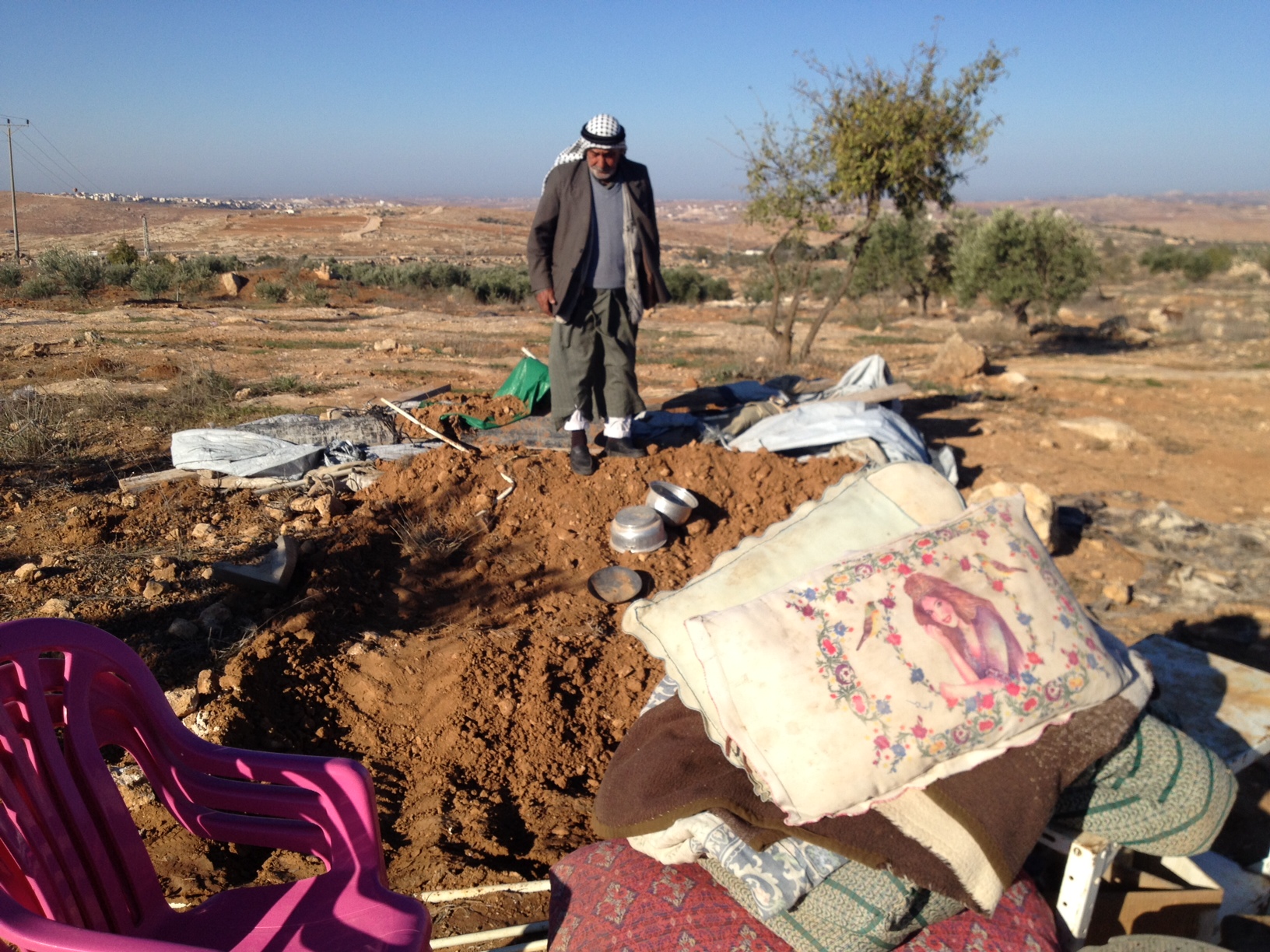Tag: House Demolition
-
Reflections on a brief exchange in the aftermath of a home demolition, 4 December 2012
by Jeff Berryhill 5 December 2012 | International Solidarity Movement, West Bank The pain and anguish on the woman’s face was penetrating. Earlier this morning two Israeli military jeeps, one civil administration vehicle, and a bulldozer had arrived at her home with orders to level the structure. This is in spite of ongoing legal proceedings…
-
Tent demolition in Susiya, South Hebron Hills
by Wyatt Black 1 December 2012 | International Solidarity Movement, West Bank On the morning of November 28th, numerous soldiers came to the village of Susiya in the South Hebron Hills, unannounced from the nearby settlement, which is also called Susiya. The army jeeps and construction equipment came rolling in around eight o’clock and quickly…
-
House Demolished in Deirit, South Hebron Hills
November 6th 2012 | International Solidarity Movement, West Bank On the morning of November 6th, 2012, a house in the village of Deirit in the South Hebron Hills was demolished by the Israeli Army amidst most of the town watching and a significant amount of media coverage. The military started moving towards the location at approximately 6…


